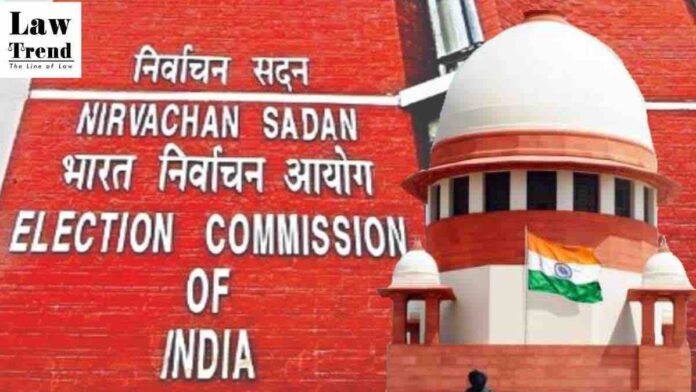The Supreme Court on Monday issued a notice to both the Election Commission and the Union government regarding a plea that seeks to redefine pre-poll freebies offered by political parties as acts of bribery. This plea, championed by Bengaluru resident Shashank J Sreedhara and consolidated with related cases, posits that such electoral practices not only impose a heavy financial burden on the state but also corrupt the essence of free and fair elections.
Chief Justice of India DY Chandrachud and Justices JB Pardiwala and Manoj Misra are overseeing the deliberations, which are drawing significant attention due to their potential to reshape electoral integrity in India. The petitioner, represented by advocate Balaji Srinivasan, argues that unchecked electoral promises lead to irresponsible fiscal policies and obscure the transparency required in a democratic setup.
The plea highlights a critical viewpoint on the 2014 Model Code of Conduct, arguing that it fails to effectively regulate the promises made during election campaigns. It asserts that the current framework allows political entities to bypass the financial scrutiny required for such promises, leading to populist measures that strain public finances and mislead the electorate.
Additionally, the petition draws on previous Supreme Court rulings, like the S. Subramaniam Balaji case, to underscore the need for a stricter interpretation of the Representation of People Act, 1951. It suggests that the act’s current interpretation allows candidates and their affiliates too much leeway to influence voters with gifts and promises without due accountability.
The ongoing debate also includes examples from recent elections where parties have promised substantial giveaways, such as televisions, laptops, and even direct cash transfers. Such practices, the petitioner argues, prioritize short-term gains over long-term welfare and sustainable governance.




